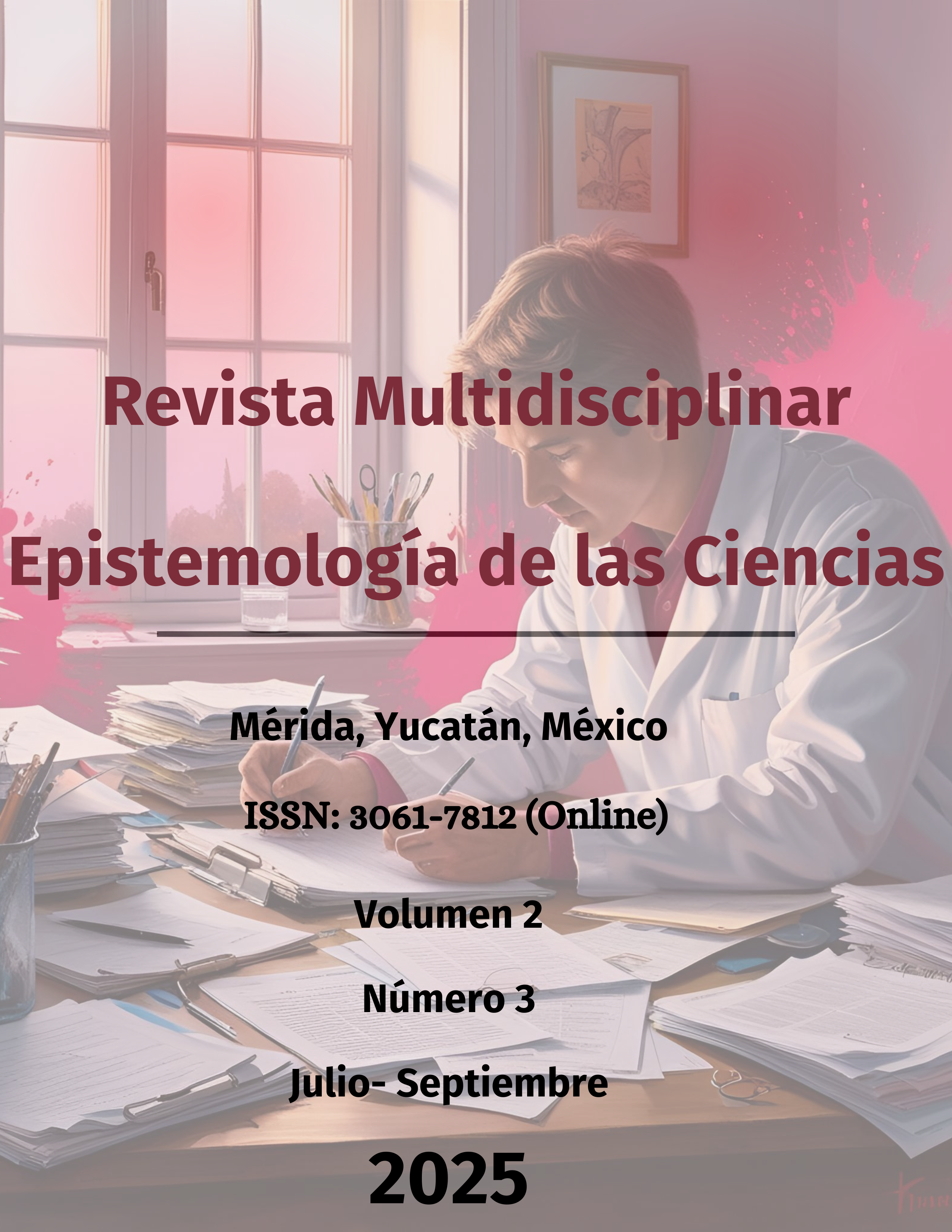Social media as a key channel in the credibility and dissemination of ecological information: impact by generation and gender
DOI:
https://doi.org/10.71112/1c7jhm23Keywords:
sustainability, green marketing, consumer preferences, environmental evidence, ecological certificationAbstract
The objective of this study was to analyze the preferences of 1,968 individuals based on the types of evidence that generate the greatest trust in the ecological authenticity of products, taking into account differences by gender and age group. A descriptive quantitative methodology was applied through a structured online survey. The results showed that 48.9% preferred official seals as the main element that guarantees sustainability, 25.6% favored public reports, 24.1% chose videos showing the manufacturing process, and 1.3% selected experiences from other consumers. Women showed a higher preference for reports (26.8% vs. 24.5%) compared to men; the 18 to 25 age group represented 83.4% of the sample. These results provide valuable insights for the development of green marketing strategies and environmental certification initiatives targeted at various demographic profiles.
Downloads
References
Associação Brasileira de Normas Técnicas. (2019). The Brazilian Ecolabelling Programme: The ABNT Environmental Quality Label (pp. 1–32). ABNT. https://www.oneplanetnetwork.org/sites/default/files/from-crm/projeto_abnt_en.pdf
Beltrán-Mora, M., & Torres, M. (2022). Potencial de los productos ecológicos ecuatorianos: Estrategias para construir una imagen en el extranjero. CICAG: Revista del Centro de Investigación Científico y Académico Global, 8(4), 135–153. https://dialnet.unirioja.es/servlet/articulo?codigo=10020897
Brito, Á. J. (2023). El marketing ecológico: un enfoque en el escenario comercial. South Florida Journal of Development, 4(6), 2580–2592. https://doi.org/10.46932/sfjdv4n6-029 DOI: https://doi.org/10.46932/sfjdv4n6-029
Brough, A. R., Wilkie, J. E., Ma, J., Isaac, M. S., & Gal, D. (2016). Is eco-friendly unmanly? The green-feminine stereotype and its effect on sustainable consumption. Journal of Consumer Research, 43(4), 567–582. https://doi.org/10.1093/jcr/ucw044 DOI: https://doi.org/10.1093/jcr/ucw044
Capgemini Research Institute. (2023). A World in Balance 2023: Heightened Sustainability Awareness yet Lagging Actions. Capgemini.
Chaiken, S., & Trope, Y. (1999). Dual-process theories in social psychology. Guilford Press.
Chen, Y. S., & Chang, C. H. (2012). Enhance green purchase intentions: The roles of green perceived value, green perceived risk, and green trust. Management Decision, 50(3), 502–520. https://doi.org/10.1108/00251741211216250 DOI: https://doi.org/10.1108/00251741211216250
Creswell, J. W., & Creswell, J. D. (2018). Research design: Qualitative, quantitative, and mixed methods approaches. Sage Publications.
Grunert, K. G., Hieke, S., & Wills, J. (2014). Sustainability labels on food products: Consumer motivation, understanding and use. Food Policy, 44, 177–189. https://doi.org/10.1016/j.foodpol.2013.12.001 DOI: https://doi.org/10.1016/j.foodpol.2013.12.001
Hernández-Sampieri, R., Fernández-Collado, C., & Baptista-Lucio, P. (2014). Metodología de la investigación. McGraw-Hill.
Instituto Nacional de Estadística y Censos. (2022). Información Ambiental en Hogares 2022. https://www.ecuadorencifras.gob.ec/documentos/web-inec/Encuestas_Ambientales/Hogares/Hogares-2022/MOD_AMB_HOGAR_ENEMDU_2022.pdf
Kumar, A., Mangla, S. K., Luthra, S., Rana, N. P., & Dwivedi, Y. K. (2021). Mitigate risks in perishable food supply chains: Learning from COVID-19. Technological Forecasting and Social Change, 166, 120643. https://doi.org/10.1016/j.techfore.2021.120643 DOI: https://doi.org/10.1016/j.techfore.2021.120643
Lyon, T. P., & Maxwell, J. W. (2011). Greenwash: Corporate environmental disclosure under threat of audit. Journal of Economics & Management Strategy, 20(1), 3–41. https://doi.org/10.1111/j.1530-9134.2010.00282.x DOI: https://doi.org/10.1111/j.1530-9134.2010.00282.x
Ministerio del Ambiente, Agua y Transición Ecológica. (2013). Mecanismo para otorgar la Certificación Ecuatoriana Ambiental Punto Verde. https://www.ambiente.gob.ec/wp-content/uploads/downloads/2013/12/Mecanismo-Certificacion-AM225-Punto-Verde.pdf
Ministerio del Ambiente, Agua y Transición Ecológica. (2018). Estrategia Nacional de Educación Ambiental para el Desarrollo Sostenible 2017–2030. https://www.ambiente.gob.ec/wp-content/uploads/downloads/2018/07/ENEA-ESTRATEGIA.pdf
Nguyen, T. T. H., Yang, Z., Nguyen, N., Johnson, L. W., & Cao, T. K. (2019). Greenwash and green purchase intention: The mediating role of green skepticism. Sustainability, 11(9), 2653. https://doi.org/10.3390/su11092653 DOI: https://doi.org/10.3390/su11092653
Petty, R. E., & Cacioppo, J. T. (1986). The elaboration likelihood model of persuasion. Advances in Experimental Social Psychology, 19, 123–205. https://doi.org/10.1016/S0065-2601(08)60214-2 DOI: https://doi.org/10.1016/S0065-2601(08)60214-2
Ríos, M., Freire, A., & Alvarez, F. (2024). Percepción de la generación Z sobre el consumo sostenible en la ciudad de Cuenca, Ecuador. Observatorio de la Economía Latinoamericana, 22(11), 141–158.
Sánchez-Alcívar, V. M., Guerra-Fiallos, D. A., & Orozco-Amaya, A. I. (2023). Influencia del marketing verde en el comportamiento de compra de los consumidores en Manta. Corporatum: Revista de Investigación de Gestión, 9(1), 53–74. https://publicacionescd.uleam.edu.ec/index.php/corporatum-360/article/download/549/828/2394 DOI: https://doi.org/10.56124/corporatum-360.v6i12.0004
Scholz, V., & Passos, A. (2024). The influence of TikTok videos on German Gen Z consumers' attitude towards sustainable fashion brands. NOVA Research Portal, Universidade Nova de Lisboa. https://novaresearch.unl.pt/en/publications/the-influence-of-tiktok-videos-on-german-gen-z-consumers-attitude
Servicio de Acreditación Ecuatoriano. (2025). Políticas de calidad e imparcialidad. https://www.acreditacion.gob.ec/politicas/
Shamdasani, P., Chon-Lin, G., & Richmond, D. (1993). Exploring green consumers in an oriental culture: Role of personal and marketing mix factors. Advances in Consumer Research, 20(1), 488–493.
Spence, M. (2002). Signaling in retrospect and the informational structure of markets. American Economic Review, 92(3), 434–459. https://doi.org/10.1257/00028280260136200 DOI: https://doi.org/10.1257/00028280260136200
Stern, P. C., Dietz, T., Abel, T., Guagnano, G. A., & Kalof, L. (1999). A value-belief-norm model of support for social movements: The case of environmentalism. Human Ecology Review, 6(2), 81–97.
Suh, M., & Yoo, J. E. (2024). Exploring the impact of sustainability trade-offs: The role of product and sustainability types in consumer purchases mediated by moral regulation. Behavioral Sciences, 14(8), 702. https://doi.org/10.3390/bs14080702 DOI: https://doi.org/10.3390/bs14080702
United Nations Environment Programme. (2024, 23 de abril). Latin America and the Caribbean implement regional approach to eco-labelling. One Planet Network. https://www.oneplanetnetwork.org/news-and-events/news/latin-america-and-caribbean-implement-regional-approach-eco-labeling
White, K., & Dahl, D. W. (2006). To be or not be? The influence of dissociative reference groups on consumer preferences. Journal of Consumer Psychology, 16(4), 404–414. https://doi.org/10.1207/s15327663jcp1604_11 DOI: https://doi.org/10.1207/s15327663jcp1604_11
White, K., Habib, R., & Hardisty, D. J. (2019). How to SHIFT consumer behaviors to be more sustainable: A literature review and guiding framework. Journal of Marketing, 83(3), 22–49. https://doi.org/10.1177/0022242919825649 DOI: https://doi.org/10.1177/0022242919825649
Youtopia Ecuador. (2025). 20 datos que reflejan las prácticas ambientales de los ecuatorianos. https://youtopiaecuador.com/20-datos-habitos-ambientales-ecuatorianos/
Youtopia Ecuador. (2025). La Guía de Recursos de Educación Ambiental ya está en manos de más de 4 millones de estudiantes. https://youtopiaecuador.com/guia-recursos-educacion-ambiental-ecuador/
Downloads
Published
Issue
Section
License
Copyright (c) 2025 Multidisciplinary Journal Epistemology of the Sciences

This work is licensed under a Creative Commons Attribution 4.0 International License.











